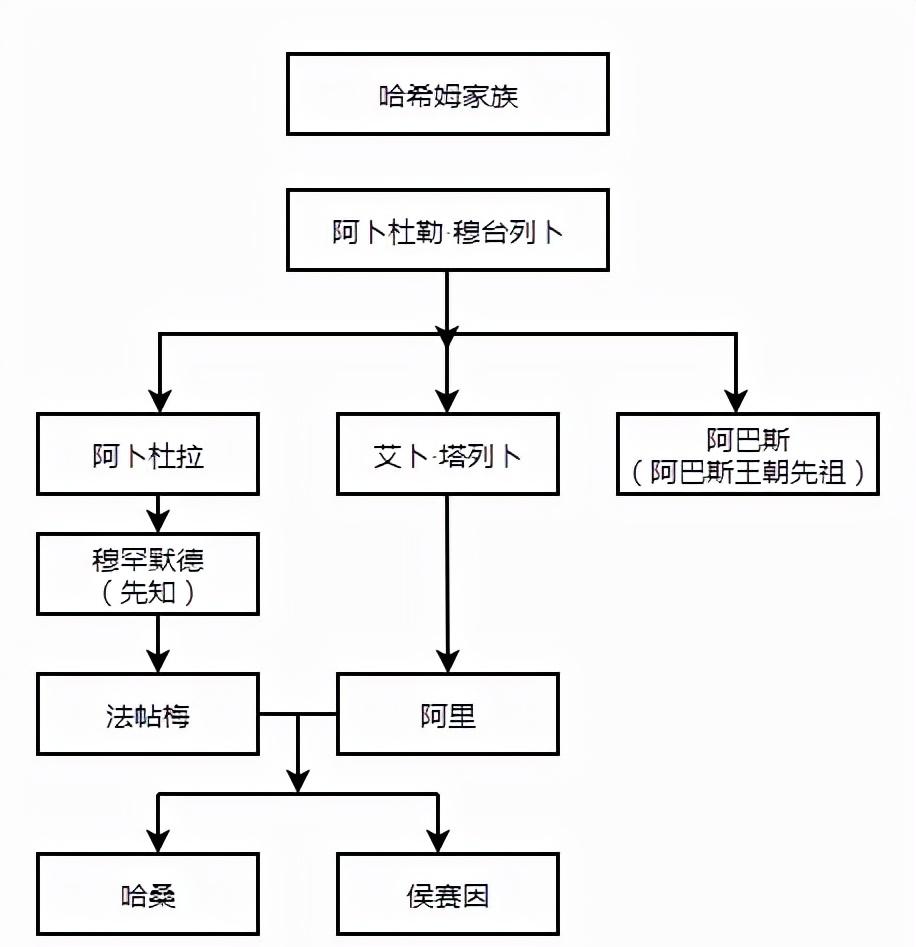There is a very peculiar situation where the only three monotheistic religions in the world originate from the Semitic. Since most of the things recorded in the Qur'an come from the Old Testament, medieval Europeans did not consider Islam to be a separate religion, but rather as a branch of Christianity, a heretic. In the Divine Comedy, Dante placed Muhammad in the ninth ditch of the eighth circle of hell.
During his lifetime, Muhammad was a religious leader and a head of state, and he was both a legislator, a law enforcer, and an adjudicator. But now that he is dead, Muslims face a big question that all civilizations in history have faced – who is the caliph (i.e., the successor)? As mentioned above, the children of the Prophet died before him except Forthomey, so he had no sons, and even if there was a problem, it would be difficult to solve. The historian of religion Shalastani once said, "There is no more bloody problem in Islam than the question of caliphate." ”

The Hashemite family lineage table, the holy family of the Islamic world, to which the Jordanian royal family belongs today
A major issue is often left to the general public to decide, and history has proven that the majority democracy is not necessarily correct (cf. The United Kingdom, which was once a chicken feather for Brexit). On the question of succession, muslims immediately split into several parties.
The first is the Emigrants, who are the tribes of the Prophet and first recognize the status of the Prophet, so the Caliph should be elected from among them. The second sect was the Auxiliary Sect, which they believed had taken in the Prophets and The Emigrants, sheltered the nascent Islam, and provided nourishment for the development of Islam, so the Caliph should choose from the Auxiliaries. Later, these two factions united to form the most central group of Muslims for centuries to come, and the Order of the Prophets also called them the Medina group.
The third group is the legalists, who believe that everything must have corresponding regulations, that special figures must become caliphs, and that voters cannot be allowed to decide on the whim of all Muslims. The Prophet had no blood lineage, so Ali, the cousin and son-in-law closest to his bloodline, should be the only successor.
Ali ibn Abi Tarib, the prophet's cousin, righteous son- and son-in-law, was invincible, and the prophet held up his hand and said, "There is no hero but Ali."
The fourth faction, the Umayyad nobles who finally surrendered, were the rulers before the Prophet, and even if they surrendered later, they still had great power.
In the end, the emigrants were victorious, and Abu Bakr became the first caliph, the first of the four orthodox caliphs. The other three are Umar, Osman ben Afan and Ali. Abu Bakr was the Prophet's father-in-law, a wealthy merchant in Mecca, and his youngest daughter, Aisha, married the Prophet and was one of several of the Prophet's earliest followers, and after the Prophet's death his only wife, Aisha, was revered as the "Mother of Believers."
It was a deal in which Abu Bakr's main rival, Umar, was the first to recognize the former's status, in return for the fact that he would be the heir to the caliphate, with Abu Bakr, Umar, and another important assistant of the Prophet, Abu Ubaid forming a powerful alliance that determined the fate of early Islam. But this also laid a great hidden danger, the prophet did not establish a clear system of succession during his lifetime, but because of a powerful force that seized the caliphate, it did not convince everyone. The Shiites refused to recognize the three of the four caliphs except Ali because they believed that they inherited the power of the Order of The Prophets of Medina rather than the will of the Prophets.
The second caliph, Umar
Abu Bakr reigned for a short time from 632-634 AD, and during those two years he did only one thing – counterinsurgency. Earlier we said that when tribes from all over Arabia sent delegations to bring Medina to see them, the Prophet promised those tribes that they could only practice Islam in words, which was a political but very fragile relationship, and it was the Prophet who sustained all this. The tribes of Arabia obeyed the leadership of the Prophet, but this did not mean that the tribes joined Islam. Now the prophets are gone, the successors are not so prestigious, the tribes refuse to recognize the new government, and false prophets everywhere emerge. The new caliphate occupies only about one-third of Arabia, and Abu Bakr was resolute in demanding the unconditional surrender of the apostates.
At this time, Khalid, the "sword of Allah" we mentioned several times earlier, appeared, and it took him only 6 months to pacify all the apostates. First he defeated the Taiyi, and then went on to conquer the Essaids and the Geeth Fangs. The strongest opponent he encountered in the process of counterinsurgency was the Yehani people who believed in the false prophet Muserimah, and in order to fight against the Islamic army, Musserimah married a christian woman and formed an army of 40,000 people.
Khalid, the sword of Allah in film and television, was the most prominent general of the early Arab period
Musseri Mai defeated the Islamic army twice until he met Khalid. At the same time, muslims also won victories in Yemen, Oman, Bahrain and other places, thus completely unifying the Arabian Peninsula. From today's point of view, this is not a war of counterinsurgency, but a war of forcing non-converts to join Islam.
The war was great, it calmed down internal instability, unified Arabia and, above all, transformed the Arabs from a loose tribe into an armed organization with a unified mind and a unified command. The Arab conquest frenzy has begun!